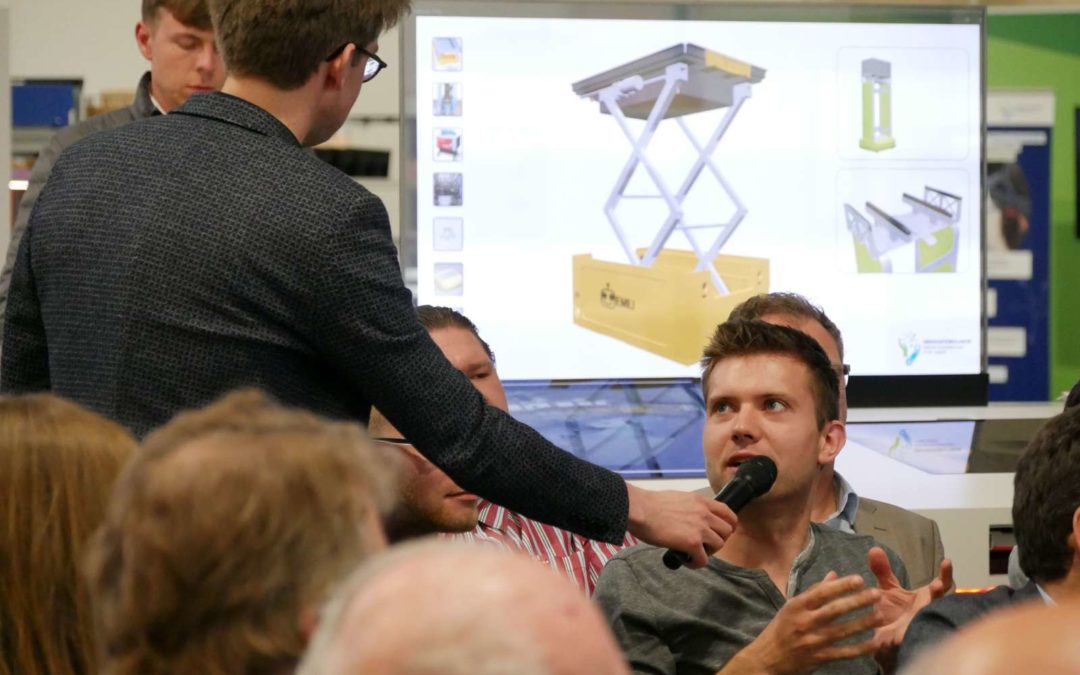Should machines replace people at work? Do smart systems make working easier or will working people become lonely? More than 50 participants, all of them interested practitioners, exchanged views in an interactive debate about opportunities and risks in the digital age. The event was hosted by the Leibniz Research Centre for Working Environment and Human Factors at the TU Dortmund (IfADo), the Social Research Centre and the Fraunhofer IML under the umbrella of the Center of Excellence Logistics and IT and the InnovationLab for Hybrid Services in Logistics. “We are the beneficiaries of digitization and not the victims. Digitization allows us to develop intellectually and socially as individuals,” Dr. Gerhard Rinkenauer, IfADo researcher and head of the “Cognitive Ergonomics” research clan at the Center of Excellence, described his vision of the working world of the future.
IfADo is one of four scientific institutions that are building a national infrastructure and an open innovation ecosystem in logistics at the Center of Excellence Logistics and IT. With its participation in the “Cognitive Ergonomics” research clan, one of ten interdisciplinary research groups at the Center of Excellence, IfADo is responsible for the development of design criteria for systems in intralogistics and, on the basis of scientific measurement and evaluation methods, points out new possibilities for physical and mental stress optimizations at work. The event at the application centre of the Innovation Laboratory at Fraunhofer IML also offered participants the opportunity to get information about the latest state of current research.
Controversial discussion in a so-called “House of Commons” debate
However, the focus of the innovative event format, a so-called “House of Commons” debate, was on the exchange of eight theses on the digitalization of the world of work, including on technological unemployment, on big data and data protection, and on digital education. As in the British House of Commons, the participants showed their point of view by choosing a seat. The chairs on one side signalled “I agree”, the other side indicated “I see it differently”. The focus of the innovative format was on the personal attitudes and opinions of the participants.
The opinions on the thesis of whether machines should replace people in all monotonous and strenuous work were very controversial. While half of the participants agreed with the thesis, the other half rejected the idea that machines should take over people’s work. On the other hand, the majority of the participants agreed that it is good when modern systems collect vital data about us at work in order to warn us of possible stress. Nevertheless, two thirds of the participants were against the thesis that we should collect health data at work, partly because the risk of abuse is higher than the benefit. The question of whether science should continue to try to develop even smarter AI systems in the future was answered in the affirmative by the vast majority of participants.
Here youwill find a detailed look at the event and the opinion of the participants on all the theses put forward for discussion.
Photo: ®IfADo


